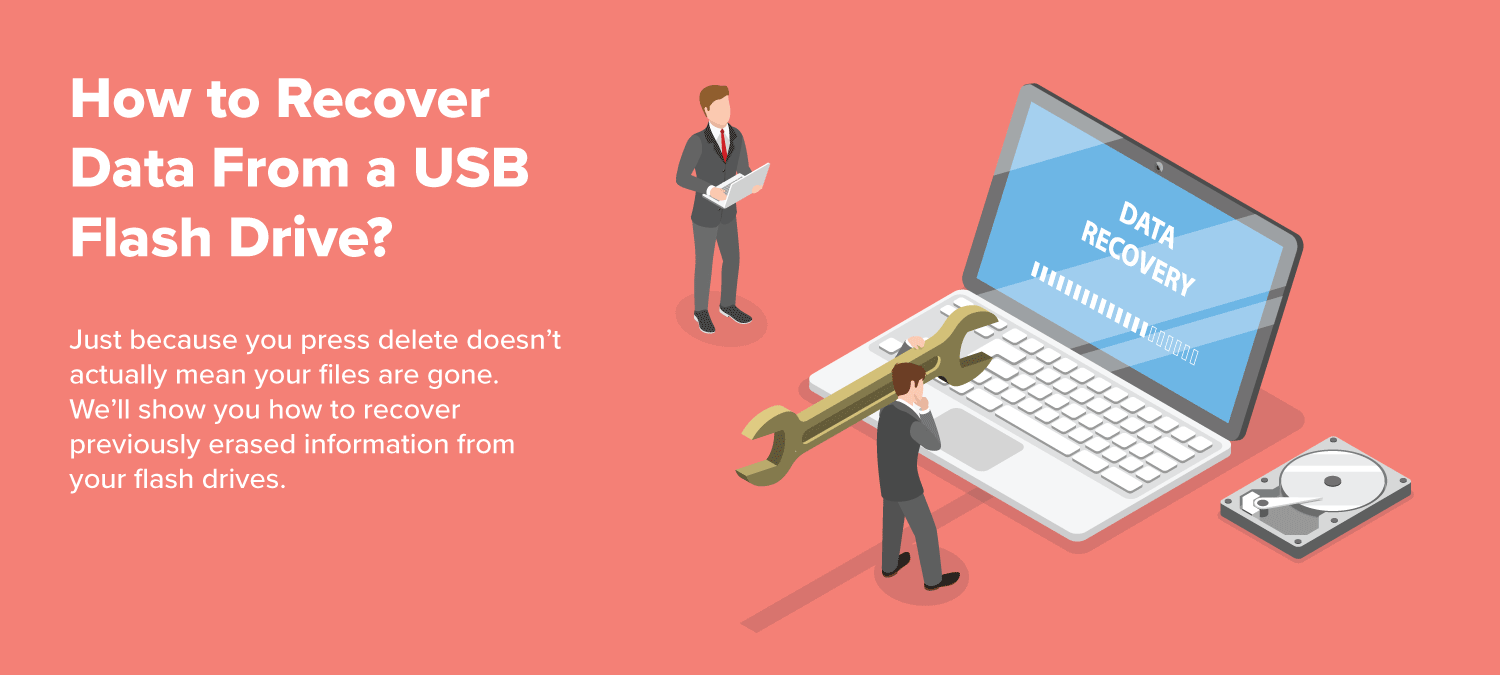
Recovering Your Lost Data
Protecting your saved files and data is something everyone is concerned with. From tech companies to casual home computer use, backup storage is something most of us have grown accustomed to and accepted as important if not necessary. Good backup storage practices have become routine and much of the motivation for that is because we are aware of how tricky recovering data once its been lost can be.
If you've done a lot of projects and work on your computer, then you're probably familiar with the cosmic tragedy that is data loss. Whether through a corrupted flash drive or maybe a scratched disk, losing your data can be devastating and (depending on the circumstances) near impossible to reverse.
Brief History of Data Recovery
People have been working on recovering computer data for literal centuries now. One of the first examples of computing data recovery was actually in 1850, well before computing as we know it today. Ada Lovelace and Charles Babbage designed their Analytical engine in the decades leading up to 1850, one of stepping stones into the modern era and technological renaissance that would come in the early 1900's. Their engine used a system of "punch cards" to run its programs and conduct its work. As the story goes, the machine required lots of rigorous and meticulous maintenance work. One of the punch cards was damaged in use and despite their efforts to repair it, the information on that specific card was lost.
A lot has changed in the realm of data recovery since Babbage and Lovelace. As our storage devices have gotten more advanced, so too has the challenge of recovering data lost on those devices.
Recuva
Luckily for the average computer user, much of the work in these sorts of problems is done on the back end by talented programmers who present the solutions to us in the form of easy to use programs. Great example: Recuva.
Recuva is a free and lightweight program provided by the makers of CCleaner and Speccy, two other popular computer tools. You can use this program to recover most files after they've been lost or deleted. It's important to keep in mind that programs like Recuva, recover data using logical methods that essentially "trace the steps" of your device to relocate data on the drive. This means that if you're hoping to use data recovery software on your drive, you should stop using the drive immediately. No more writing or deleting from the drive until you are able to run a scan. This increases your chances of success by essentially freezing all the data on the drive so none of it is further lost or moved around.
This solution assumes that there is no fatal issue with the device itself. For example, if your USB's controller chip has somehow been damaged removed, then Recuva is unlikely to help.

Once you've downloaded Recuva, it's just a matter of clicking through the dialogue according to what you need. In this instance, I am searching for a photo I seem to have accidentally removed from my PC some time ago. (If you are searching for a different file type or aren't sure what file type you're looking for, click the corresponding selection)

Since I'm not sure where the photo was prior to my losing it, I've let the option "I'm not sure" selected. Narrowing the location will simply save time on your scan, don't worry if you're not sure where your file was located.

Once you've set the parameters of the scan, pressing Start will allow Recuva to run its process on your drive or folder. If your search doesn't yield the result you are looking for, it's recommended you allow for a "deep scan" or widen the scope of the search. Keep in mind the "deeper" and further reaching the scan performed by Recuva, the longer it will take.

Once your scan is complete, Recuva will show you all results found. While there will probably be no previews available, you will likely recognize your lost file on the list through file names or keywords. Recuva will also give you information as to where the file came from before it was erased.
Professionals
Lost and destroyed data has become such an issue that a whole industry has blossomed around it. You can find professionals all over the web that have developed their own methods and facilities where they claim to be able to get your data back. These sorts of services can be extremely costly though and are really only recommended as a last resort, or in some sort of emergency.
Personally, I recommend that you seek out professionals like these when there is physical damage to the storage device or some mechanical issue. While many of these companies have developed their own proprietary software to recover data digitally, it is unlikely that they are far outperforming Recuva. So, for issues of corruption, misallocation, or deletion Recuva will likely solve your issue. If the problem is more sophisticated than that, then it is reasonable to employ the expertise of a data recovery specialist.
You'll want someone who understands the mechanics of your hard drive, USB, server, or otherwise. More than that, if the data is privileged or sensitive, you'll want professionals who know how to securely handle your information. Considering the data you need to be retrieved is valuable, then these factors are worth paying some extra cash to ensure.